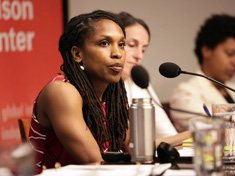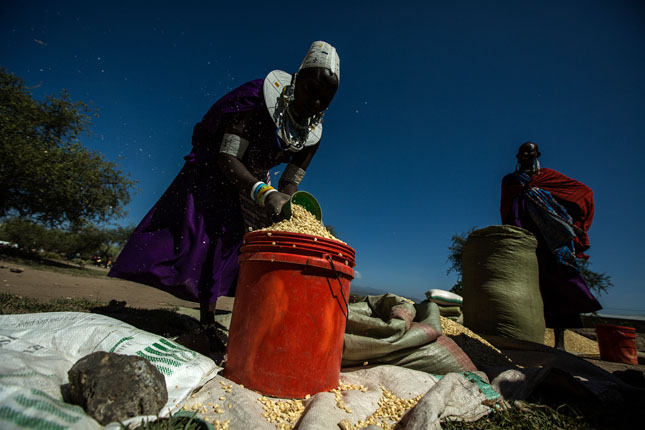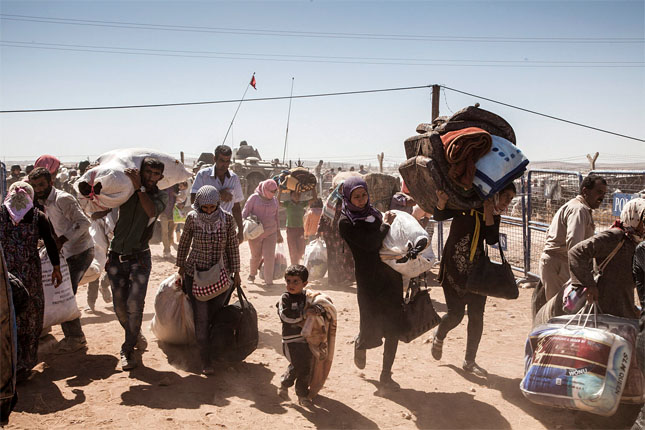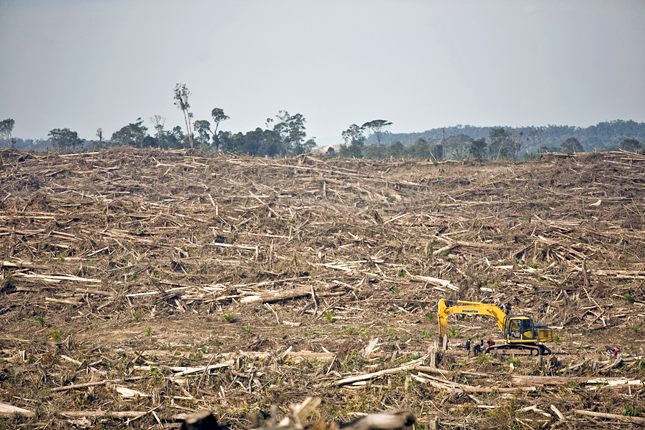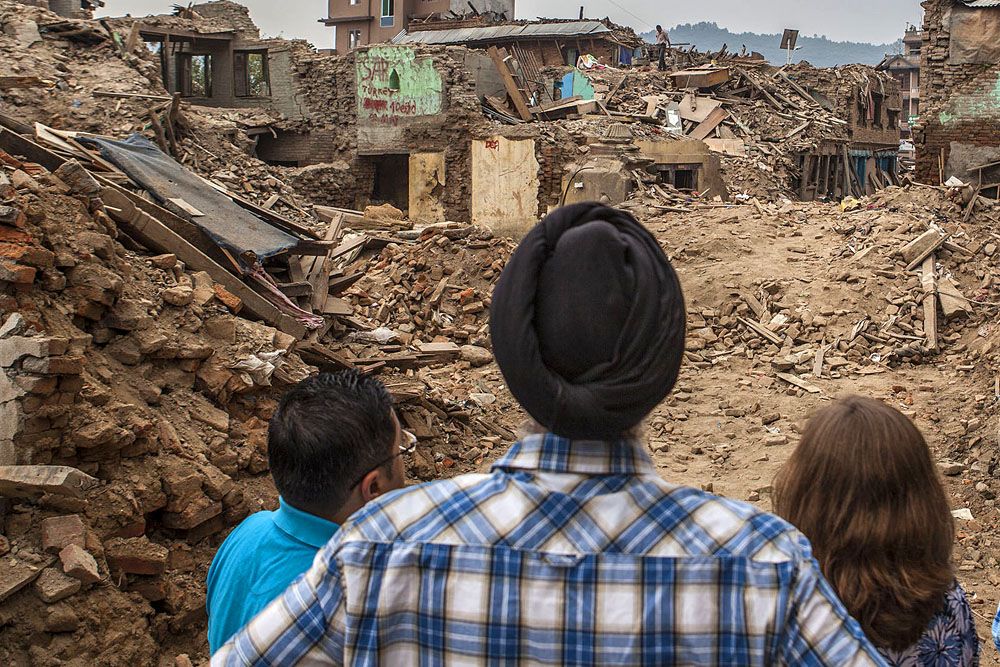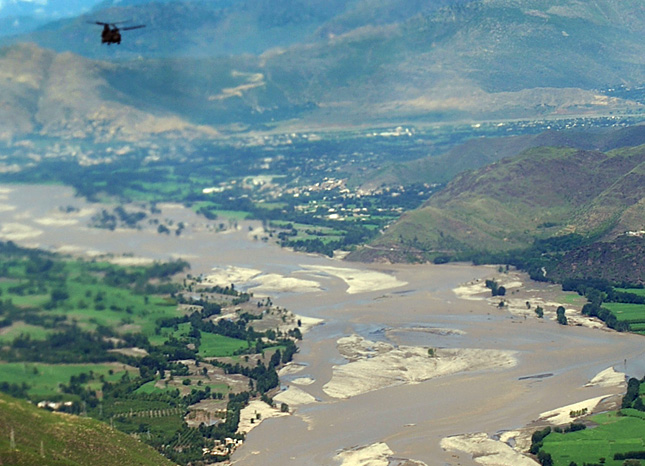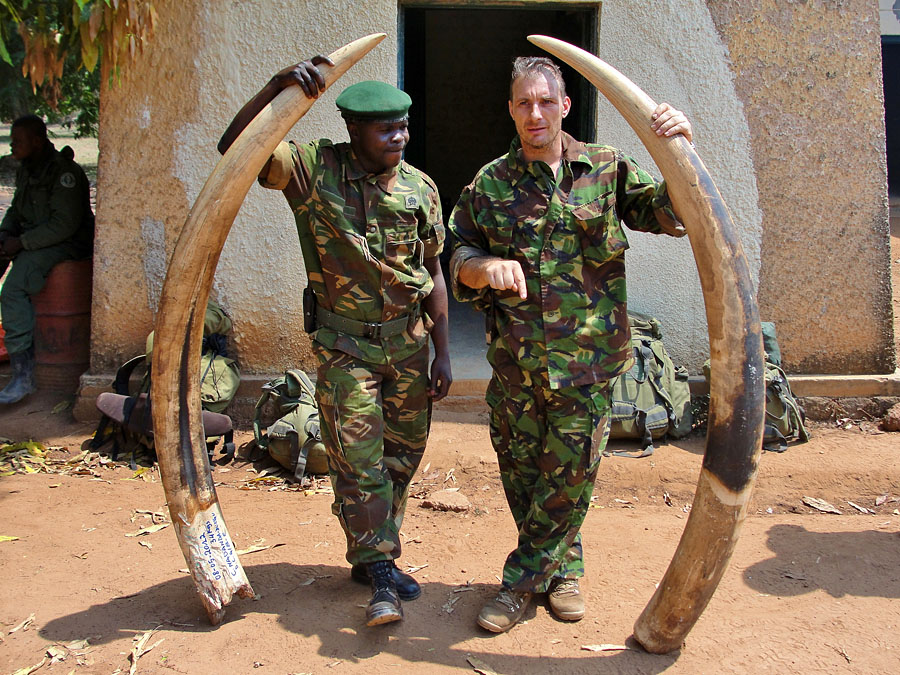-
From the Wilson Center
Human Rights and the Environment: How Do We Do Better?
MORE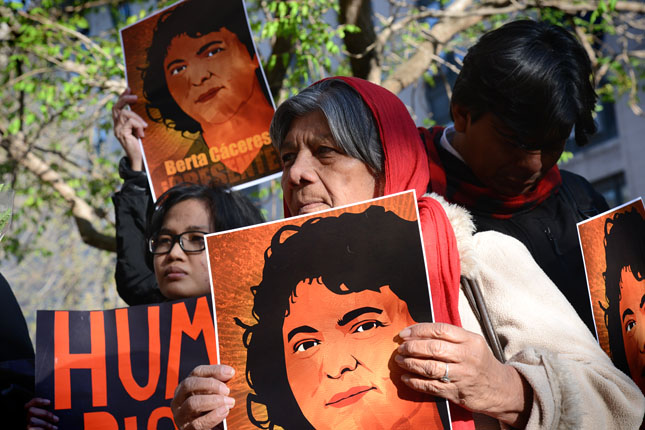
2015 was a deadly year for environmental activism. According to Global Witness, 185 activists were killed, a 60 percent increase from 2014. Of the victims, 40 percent were indigenous people, like Berta Cáceres, who spoke at the Wilson Center last year and was shot and killed in her home in Honduras this March. [Video Below]
Topics: adaptation, Chad, climate change, community-based, conservation, demography, development, disaster relief, environment, environmental health, featured, From the Wilson Center, funding, gender, global health, human rights, international environmental governance, livelihoods, migration, mitigation, natural resources, poverty, risk and resilience, security, U.S., video, water, youth -
Friday Podcasts
Maxine Burkett on Why “Climate Refugees” Is Incorrect – and Why It Matters
MORE
More and more we are hearing stories about “climate refugees.” U.S. Interior Secretary Sally Jewell used the term to describe the Biloxi-Chitimacha-Choctaw tribe, a community which this year became the first to receive federal funding to relocate in its entirety from their sinking island home on the Louisiana coast.
-
Feeding the Future? A Closer Look at U.S. Agricultural Assistance in Tanzania
May 11, 2016 // By Haodan "Heather" ChenMORE
Between 2010 and 2015, Tanzania received more than $320 million in assistance via the U.S. government’s Feed the Future Initiative – the most of any country. But despite these commitments and an average of six to seven percent annual economic growth since 2000, Tanzania did not meet the first Millennium Development Goal: to reduce hunger and extreme poverty by half by the end of 2015.
-
Guest Contributor
Breaking the Fragility Trap: What Role for the World Bank?
MORE
Last month, the World Bank’s Fragility Forum in Washington, DC, brought together some 600 participants to discuss how to advance sustainable development in the context of increasing conflicts and violence. World Bank President Jim Yong Kim opened the forum by emphasizing that we are at a critical moment.
-
Guest Contributor
India’s Thirst for Palm Oil, New South-South Trade Patterns Cast Doubt on Sustainability Initiatives
MORE
Patterns of trade and consumption in the global food system are shifting. In the past, most trade in agricultural commodities occurred between developed and developing countries. But, in recent years, the volume of South-to-South trade has increased significantly. Today, some of the most problematic crops in terms of their effect on the environment, such as soy and palm oil, are predominantly traded amongst developing and fast-rising countries.
-
Guest Contributor
Scenario Planning for Development: It’s About Time
MOREScenario planning has a long history. The RAND Corporation employed it heavily in planning for potential U.S. responses to nuclear war and 16th century Spanish Jesuit theologians pointed to the idea as proof of free will. But in many respects this powerful set of methodological tools for managing complexity and uncertainty remains underused, especially beyond the defense, intelligence, and business communities.
Topics: Afghanistan, Africa, Colombia, conflict, demography, development, disaster relief, DRC, Europe, featured, Guest Contributor, humanitarian, Middle East, migration, security, Syria, U.S., Uganda, USAID, Zimbabwe -
From the Wilson Center
A New Climate for Peace: Taking Action on Climate and Fragility Risks (Report Launch)
MORE
As momentum builds towards the negotiation of the Sustainable Development Goals and UN climate change summit later this year, the G7 countries – France, Germany, Italy, Japan, Canada, the UK, and the United States – have made a strong statement about the importance of climate security risks. A New Climate for Peace: Taking Action on Climate and Fragility Risks, an independent report commissioned by G7 foreign ministers and authored by a consortium of international organizations including the Wilson Center, analyzes the security and stability risks posed by climate change and offers concrete policy options for addressing them. [Video Below]
Topics: adaptation, Canada, climate change, conflict, cooperation, development, economics, environment, environmental peacemaking, environmental security, Europe, European Union, featured, food security, foreign policy, France, From the Wilson Center, Germany, humanitarian, international environmental governance, Italy, Japan, military, mitigation, QDDR, risk and resilience, security, State, U.S., UK, USAID, video, water -
Guest Contributor
Is Wildlife Trafficking a National Security Threat?
MORETrafficking of illegal wildlife goods is quickly becoming one of the most lucrative illicit businesses in the world. With growing demand in Asia, an industry that was once fed by isolated, small-scale poaching incidents is now run by well-organized, transnational criminal networks, similar to narcotics and guns. The Obama administration labeled wildlife trafficking as a national priority in 2013 and released a National Strategy for Combatting Wildlife Trafficking in 2014. A detailed implementation plan for the strategy followed this year, identifying key steps and implementing agencies to help end trafficking in the United States and abroad.
 A Publication of the Stimson Center.
A Publication of the Stimson Center.

